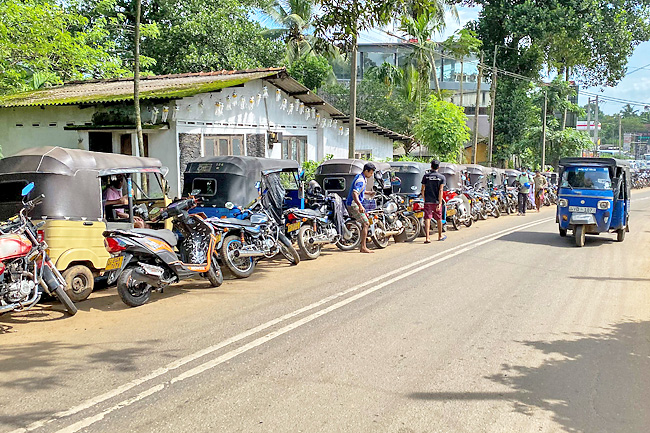COLOMBO (AFP) – Sri Lanka’s economy shrank 1.6 per cent in the first quarter of this year as an unprecedented financial crisis began to impact commercial activity, according to official data.
The island nation’s painful downturn has seen months of lengthy blackouts, runaway inflation and severe shortages of vital consumer goods.
A shortage of foreign currency needed for the import of fuel, fertiliser and other essentials had a devastating effect on the economy just as the coronavirus pandemic was receding.
The January-March contraction was worsened by the “adverse effects” of inflation and Sri Lanka’s crashing currency, the statistics department said.
The agency noted that a ban on pesticide and fertiliser imports last year, since repealed, had a devastating effect on farmers with the first-quarter rice harvest down 33 per cent. It added that an ongoing fuel shortage was having serious impacts on transport and industry.

Sri Lanka has defaulted on its USD51 billion foreign debt and is now in bailout talks with the International Monetary Fund.
Protesters demanded the resignation of President Gotabaya Rajapaksa over government mismanagement of the nation’s finances.
Inflation hit a record 45.3 per cent last month while the rupee depreciated over 50 per cent against the dollar this year.
Prime Minister Ranil Wickremesinghe warned in Parliament last week that the country was facing a record recession.
The government is seeking discounted oil from Russia and Qatar to address its critical shortfall in meeting the nation’s energy needs, with petrol sales currently banned for two weeks except for emergencies.






